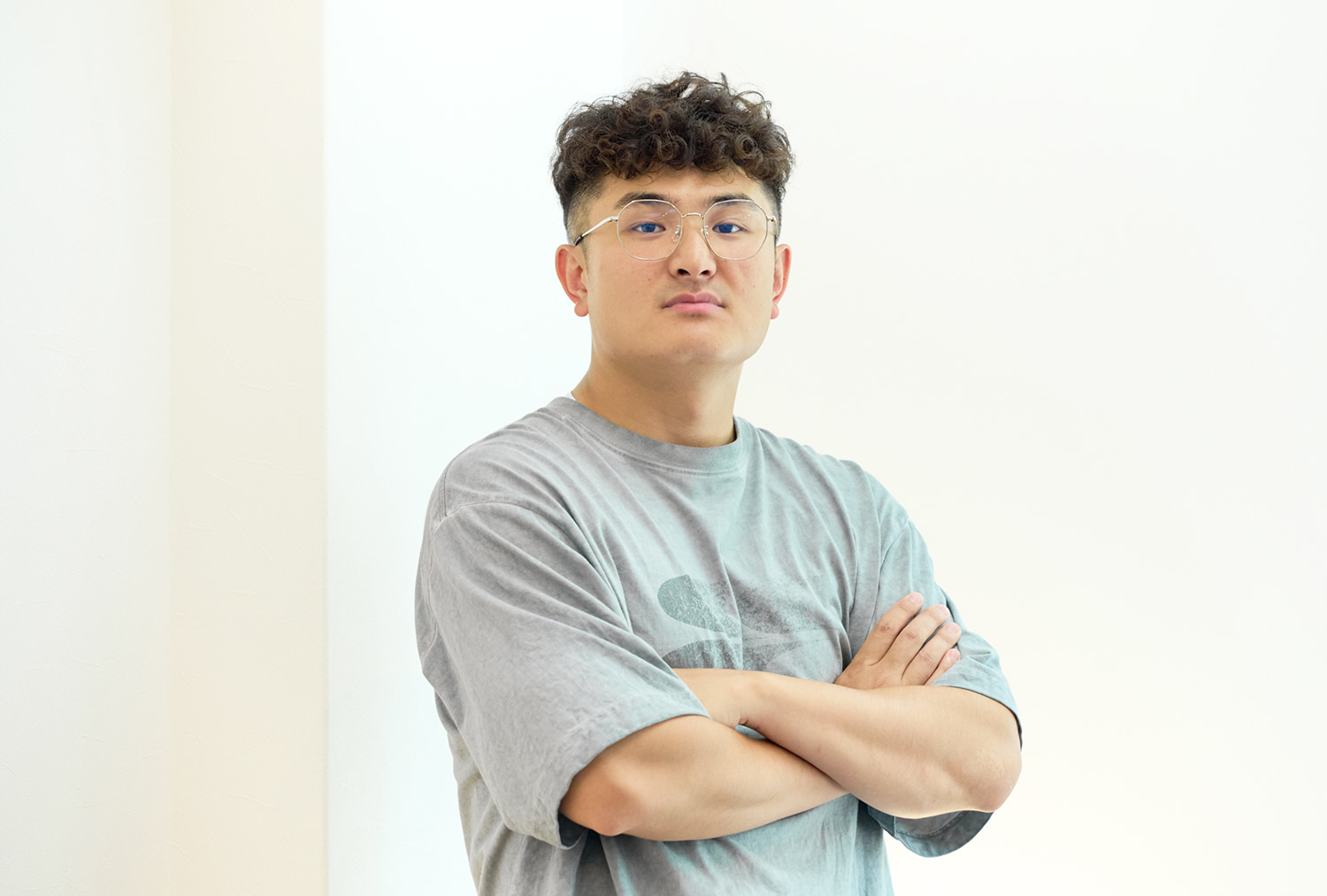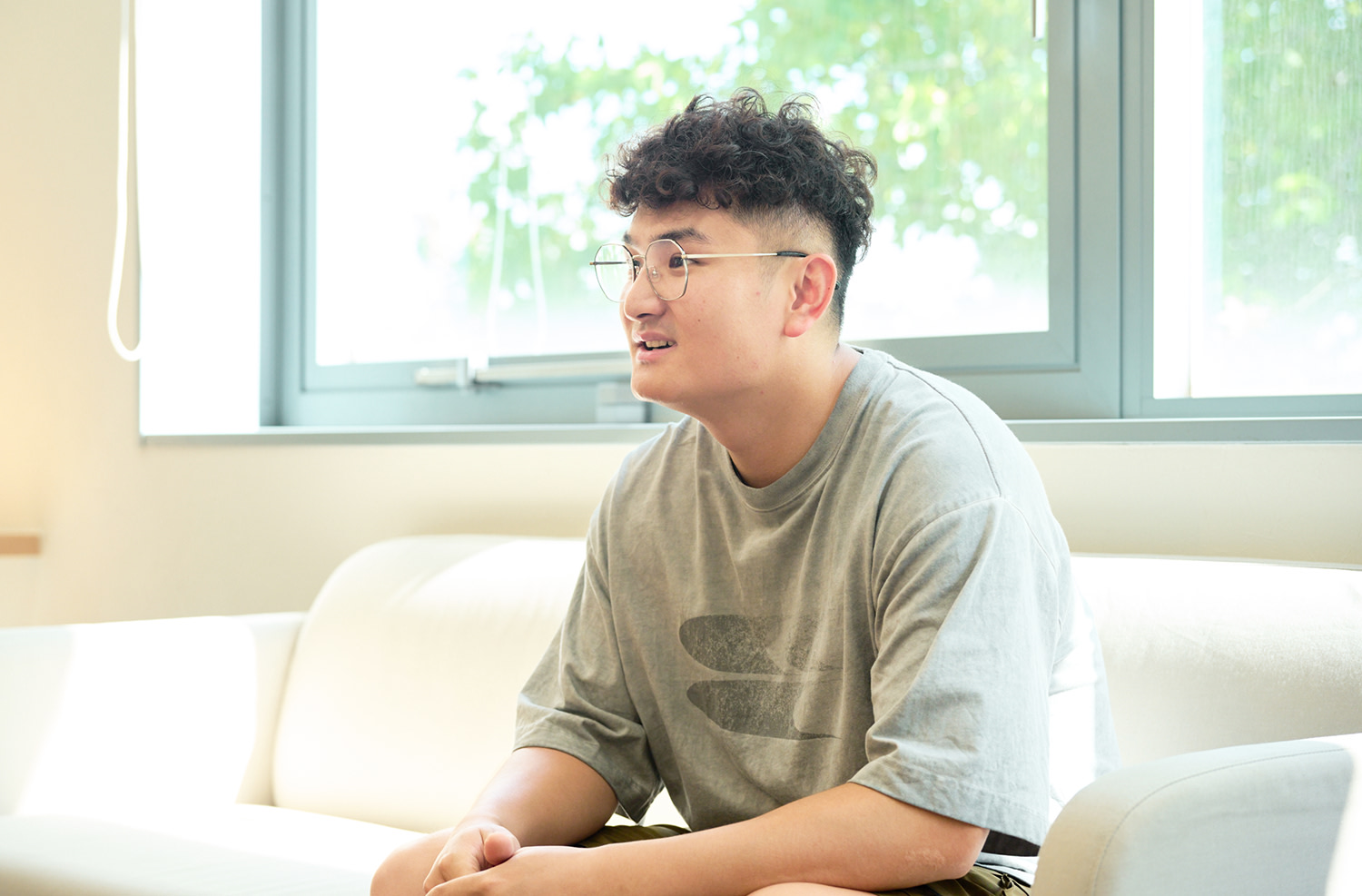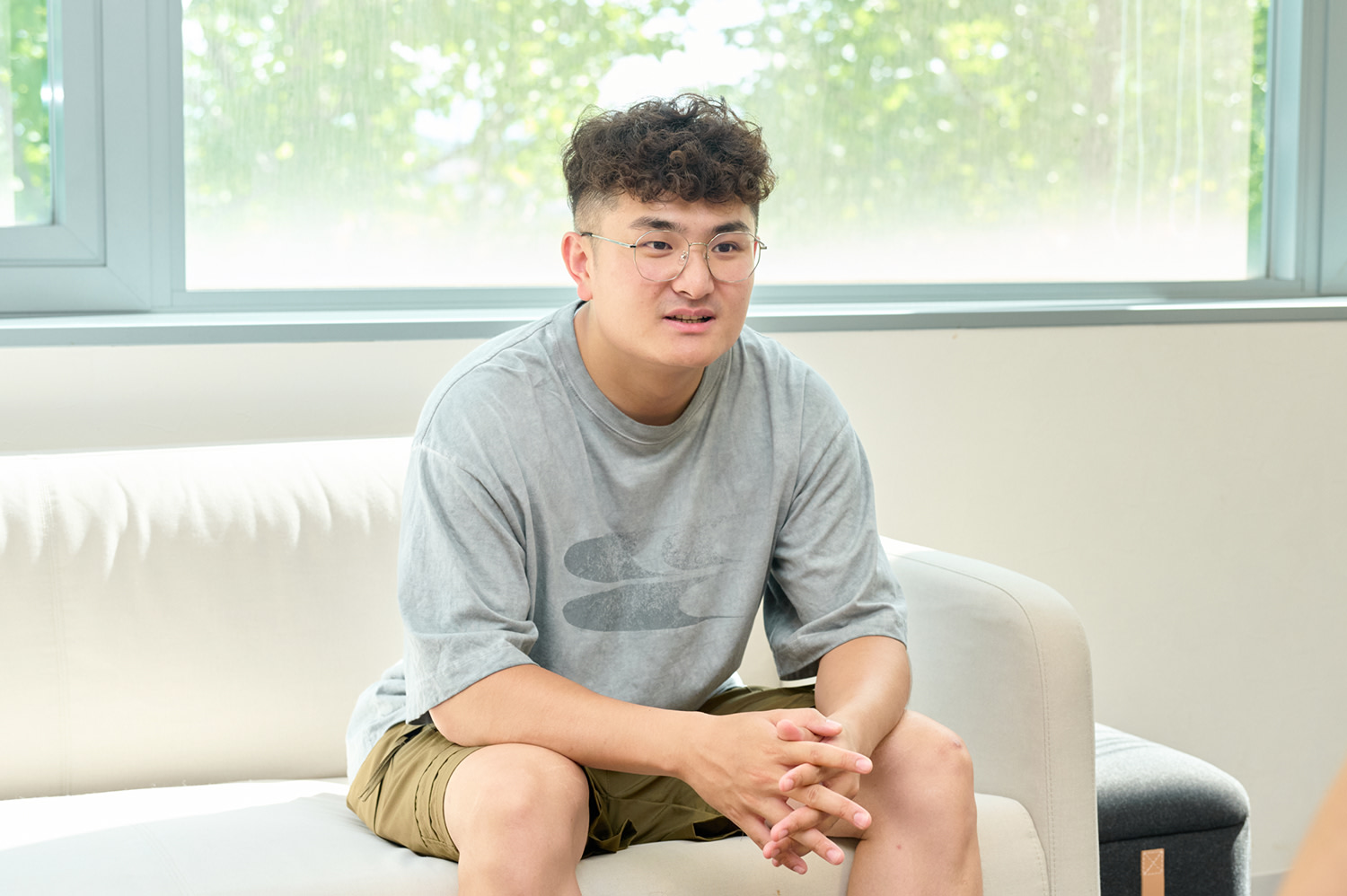あなたの研究テーマについて教えてください。What is your research theme?

The research theme I'm doing right now is a graph-based hierarchy of the bus routes, planning using the taxi origin and the destination data. Traditionally, this kind of research was mainly for optimizing the bus routes for the big cities. But my research is more focused on the mid-sized cities. The research data I'm using is near the Susono City.
This city has some problems with transportation: most of the people there are older, the budget allocated for public transportation is limited, and most of the taxi drivers are retiring. So, maybe around 2027, they'll need some better bus routes. My research is helping them to set up the best bus stops and design the best bus routes.
Mainly, I will use some data clustering, or some TSPs*1, because we're using thousands of taxi data points from the origin to the destination to classify which part is the most significant, then we can put some bus stations there. My research is in cooperation with Toyota, so the data is from them—it’s like all private data.
One reason I chose this research theme is that my professor, Ikeda-sensei, recommended it. I found it quite interesting because I hadn't known you could use machine learning and a data-driven approach to find the best locations for bus stops and the most efficient routes. In my hometown in China, we have a very large bus system, but I feel that some bus routes are inefficient. So, I thought if it were possible to create a pipeline that provides the best bus routes for some cities, I might be able to apply it to my home country as well.
*1 Traveling Salesperson Problems: a classic optimization problem that seeks the shortest possible route that visits a set of cities and returns to the origin.
なぜ博士課程へ進学しましたか?Why did you decide to pursue a doctoral program?

I completed my undergraduate studies in Thailand over four years. My hometown is a mere hour and a half flight away, so it was a convenient choice. During my bachelor's, there was an opportunity for an internship at NAIST, which I didn't pursue at the time. However, after graduation, some of my classmates enrolled there. Given my background in software engineering, not data science, I felt a strong desire to delve deeper into data-related fields. This led me to pursue my master's degree in Japan.
My first year as a master's student was heavily focused on coursework, reports, and homework, leaving me with limited time—only about a year, in fact—to dedicate to research. I realized I needed more time to gather sufficient data, experiment with various models, and develop more algorithms to elevate my research. This conviction was the primary driver for my decision to pursue a PhD.
Another contributing factor was my uncertainty during my master's program about whether to continue in academia or transition to industry. Pursuing a PhD seemed like a good way to gain more time to explore these questions and make a more informed decision.
Graniteの支援で役立っている・助かっていることを教えてください。Please share what has been helpful or beneficial through the support provided by Granite.
It's really obvious because they give me money, like the scholarship. It can cover the big problems of my daily financial situation. When I was a master's student, I didn't get any scholarships. That made me have to find some part-time jobs, like at a restaurant, to earn money. It took some of my energy, and I couldn't fully focus on my research. But for now, I get monthly support, so I don't need to worry about my income. I can fully focus on my research. Also, I can use this grant money to get some equipment, maybe laptops or hard drives, because my research involves massive data, so I need a place to store it.
Since becoming a Granite fellow, I also got the chance to talk with other people who also received it. I met some people in my lab and other labs. Even though we're doing different research, sometimes we talk about it and maybe we can have some collaborations.
将来の目標、もしくはあなたが胸に秘めた野望があればぜひ教えてください。Please share your future goals or any ambitions you hold close to your heart.
Upon graduation, I hope to remain in Japan. I'd like to pursue a career as either a professor or a company employee. My primary goal is to apply the knowledge I've gained to real-world projects, and I'm open to both paths.
Regarding my longer-term goals, perhaps 10 or 20 years from now, it's difficult to say. Everything is changing so rapidly. If we look back 10 or 20 years, the world was completely different. We were still using tiny smartphones with keyboards, whereas now phones have undergone a complete transformation. So, while it's truly hard to predict, one thing I can confidently say is that I will continue to learn new techniques and adapt. I'll strive to stay current with the world's advancements so I can flexibly transition into new roles or types of work.
博士課程進学を考えている人へのメッセージをください。Please share a message for those considering pursuing a doctoral program.

I think it's quite complicated and depends on the individual. Some people pursue a PhD to continue in academia, while others simply want the degree to secure better job opportunities. I believe the most important thing is to consult with friends, family, or even your sensei or colleagues. You need to gather diverse advice and perspectives. While you don't necessarily have to follow what they say, hearing different opinions will help you better understand if a PhD program is truly right for you.






